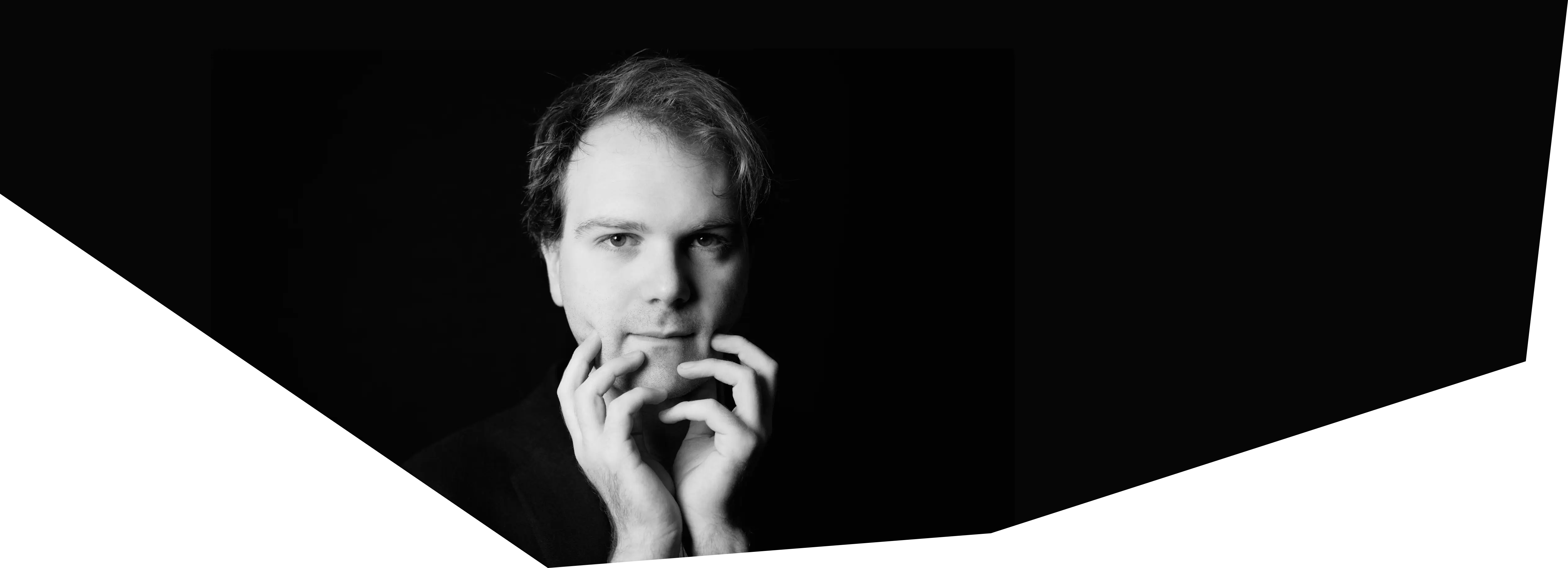
Pianist
The core of Orlando Bass' musical activities is centered around piano performance. Based in France and Germany, he plays at a variety of international venues, in concert halls and private settings alike, but also in places where musical performance is unusual or unexpected.
His musical education includes multiple Bachelor and Master's degrees from the CNSM in Paris, and an Artist Diploma at the HfM in Berlin. In 2023 he won the first prize and two special prizes at the Messiaen Competition, and is since 2019 a laureate of the Banque Populaire Foundation.
A keen interpreter of contemporary music and a staunch supporter for new music, he has given numerous first performances of solo and ensemble works. He firmly believes that collaborating with living composers is key to understanding music of the past with an open mind.
In his vision of the solo recital, the programme is organised the way an art exhibition is curated : a retrospective around a single composer, a finely culled repertoire around a specific theme, or (his favourite) a single monumental work.
Le cœur des activités musicales d'Orlando Bass est centré sur le piano. Basé en France et en Allemagne, il se produit dans une variété de contextes à travers le monde, aussi bien dans des salles de concert que dans des lieux plus privés, voire dans des espaces où l'interprétation musicale est inhabituelle ou inattendue.
Son éducation musicale inclut plusieurs diplômes de licence et de maîtrise du CNSM de Paris, ainsi qu'un diplôme d'artiste à la HfM de Berlin. En 2023, il a remporté le premier prix et deux prix spéciaux du Concours Messiaen, et depuis 2019, il est lauréat de la Fondation Banque Populaire.
Ardent interprète de la musique contemporaine et fervent défenseur de la musique nouvelle, il a donné de nombreuses Premières d'œuvres en solo et en ensemble. Il est fermement convaincu de la nécessité de collaborer avec des compositeurs vivants afin d'appréhender la musique du passé avec un esprit ouvert.
Selon sa vision du récital solo, c'est à la manière d'une exposition d'art que le programme doit être conçu : une rétrospective autour d'un unique compositeur, un répertoire soigneusement constitué autour d'un thème spécifique ou, comme il le préfère, une seule grande œuvre monumentale.
Der Schwerpunkt der musikalischen Aktivitäten von Orlando Bass liegt auf dem Klavierspiel. Er ist in Frankreich und Deutschland zuhause und gibt Aufführungen an einer Vielzahl von internationalen Spielorten, in Konzertsälen und im privaten Rahmen, aber auch an Orten, wo eine musikalische Aufführung ungewöhnlich oder überraschend ist.
Seine musikalische Ausbildung umfasst mehrere Bachelor- und Masterabschlüsse am CNSM in Paris und ein Konzertexamen an der HfM in Berlin. Im Jahr 2023 erhielt er den ersten Preis und zwei Spezialpreise beim Messiaen-Wettbewerb, und seit 2019 ist er Förderpreisträger der Stiftung Banque Populaire.
Als engagierter Interpret zeitgenössischer Musik und überzeugter Verfechter der Neuen Musik hat er zahlreiche Solo- und Ensemble-Uraufführungen gegeben. Er glaubt fest daran, dass die enge Zusammenarbeit mit heute lebenden Komponisten der entscheidende Faktor ist, um Musik aus der Vergangenheit mit einem offenen Herzen zu verstehen.
In seiner Vision des Solokonzerts ist das Programm so aufgebaut, wie eine Kunstausstellung kuratiert wird: eine Retrospektive zu einem einzigen Komponisten, ein raffiniert ausgewähltes Repertoire zu einem bestimmten Thema oder (sein Favorit) ein einzelner monumentaler Werk.
weird music
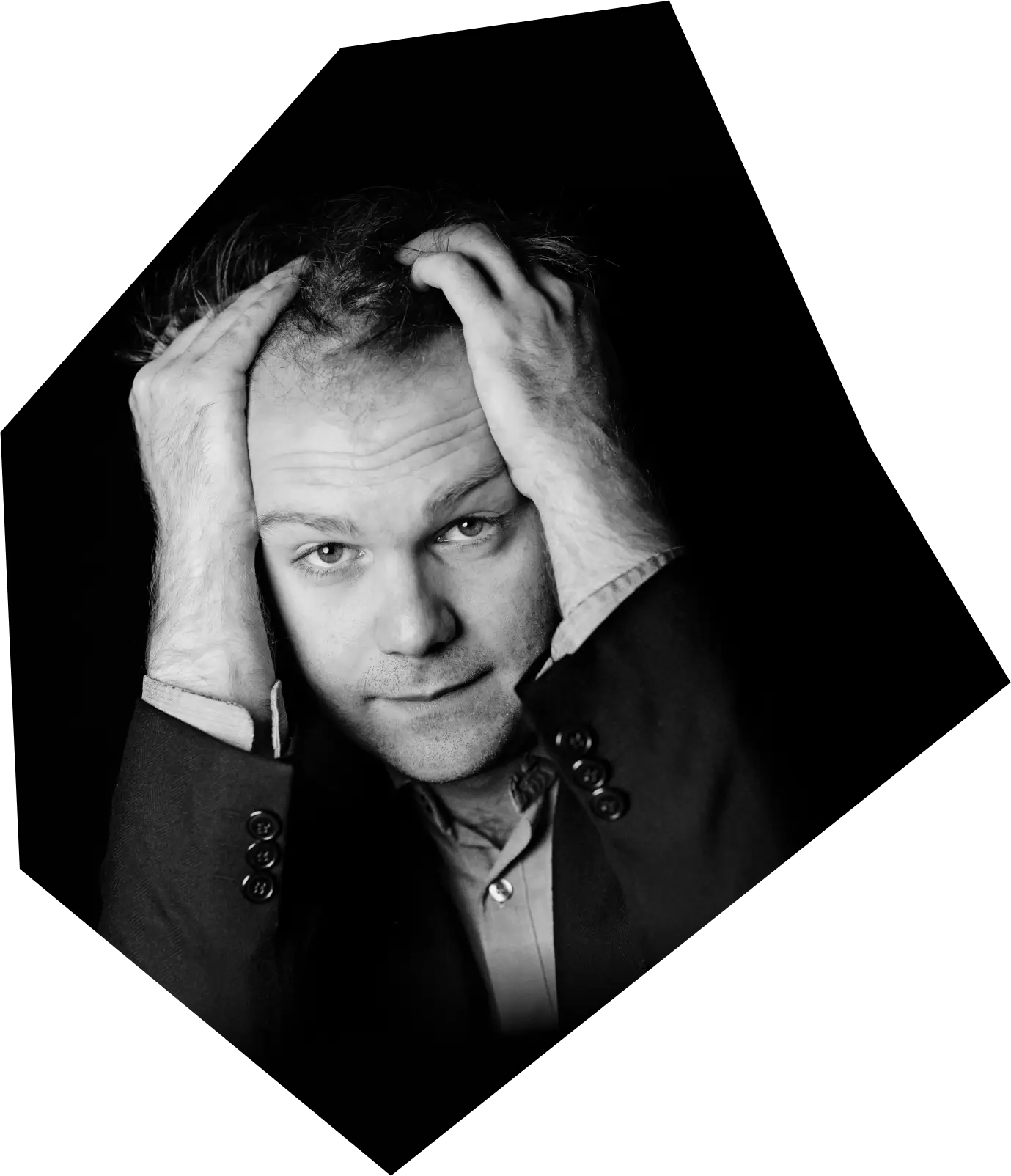
He regularly performs an extensive part of the classical repertoire, and feels the need to explore forgotten masterpieces, by famous and unknown composers alike. This has led him to adore the explosion of musical expressions, languages, and aesthetics of the earlier part of the 20th century, and he conducts research to rediscover unjustly neglected figures (Michel Ciry, Leonzi Honauer...)
The art of transcription is another obsession of his: he writes his own arrangements and paraphrases of symphonic and operatic works, most often with the ambition of imagining how the composer would rewrite their music in today's mindset, without shying away from extended techniques that have only recently been developed.
He occasionally performs an improvised musical accompaniment to projections of silent films, and enjoys improvisation performances in which he takes suggestions and instructions from the audience.
Microtonal music, participatory works, game theory, musical theater, multi-instrumental performance, there is no form of experimental music that would not spark his interest.
Il interprète régulièrement une grande partie du répertoire classique et éprouve le besoin d'explorer des chefs-d'œuvre oubliés, de compositeurs célèbres ou méconnus. Cela l'a amené à se passionner pour le déferlement des expressions musicales, des langages, des esthétiques du début du 20ème siècle, et à mener des recherches pour redécouvrir des figures injustement négligées (Michel Ciry, Leonzi Honauer...).
La transcription est une autre de ses obsessions. Il rédige ses propres arrangements et paraphrases d'œuvres symphoniques et lyriques, le plus souvent avec l'ambition d'imaginer de quelle manière le compositeur réécrirait sa musique dans l'esprit d'aujourd'hui, sans rechigner à employer de nouvelles pratiques instrumentales récemment introduites dans l'univers musical.
Il improvise parfois l'accompagnement musical lors de projections de films muets, et apprécie particulièrement les concerts d'improvisation dans lesquels le public est invité à lui donner des suggestions, des consignes et des contraintes.
La musique microtonale, les œuvres interactives, la « Game theory », le théâtre musical, les performances à plusieurs instruments, aucune forme de musique expérimentale ne saurait manquer d'éveiller son intérêt.
Er spielt regelmäßig einen großen Teil des klassischen Repertoires und hat den Wunsch, vergessene Meisterwerke bekannter und unbekannter Komponisten zu entdecken. Deshalb bewundert er die explosive Entwicklung der musikalischen Ausdrucksformen, der Sprachen und der Ästhetik in der ersten Hälfte des 20. Jahrhunderts und forscht, um zu Unrecht ignorierte Komponisten wiederzuentdecken (Michel Ciry, Leonzi Honauer...).
Eine weitere Leidenschaft von ihm ist die Kunst der Transkription. Er schreibt seine eigenen Bearbeitungen und Paraphrasen von symphonischen und Opernwerken, häufig mit dem Gedanken, wie der Komponist seine Musik im heutigen Sinne bearbeiten würde, und ohne Angst vor modernen Techniken zu haben, die erst seit kurzem entwickelt worden sind.
Manchmal begleitet er Stummfilmprojektionen mit improvisierter Musik und genießt Improvisationsaufführungen, in denen er Vorschläge und Hinweise des Publikums aufnimmt.
Mikrotonale Musik, partizipatorische Werke, Game-Theory, Musiktheater, multiinstrumentale Aufführungen - es gibt keine Form der experimentellen Musik, die nicht sein Interesse wecken würde.
Equally comfortable on modern and historical instruments, he enjoys performing on somewhat unusual pianos, using their different characteristics to nourish and vary his musical interpretation. This gives him the possibility of choosing a historically adequate piano for performance, or purposely choosing an inadequate piano out of sheer curiosity.
Studying the peculiarities of historical performance and period instruments is a source of innovative ideas, as one of his biggest fears would be that music became a static practice and stop evolving.
Amongst the various families of historical keyboard instruments, the harpsichord takes up a special place in Orlando Bass' musical life. This mechanically plucked string instrument does not have an acoustically dynamic range. The harpsichordist must then trick the listener's ears and mind, using timing, ornamentation, and other specific techniques, in such a manner that the harpsichord is no longer a mechanical toy, but a singing, lilting, expressive instrument as much as it is shimmering, volubile and virtuosic.
Parfaitement à l'aise aussi bien sur des instruments modernes qu'historiques, il aime se produire sur des pianos atypiques, dont les particularités alimentent et diversifient ses interprétations musicales. Cela lui donne la possibilité de choisir un piano adéquat d'un point de vue historique pour se produire, ou de choisir délibérément un piano inadéquat par pure curiosité et l'espoir d'un heureux accident.
En étudiant les singularités d'interprétation liées à la pratique des instruments historiques, il y puise des idées innovantes, car l'une de ses plus grandes craintes consisterait en ce que la musique devienne une discipline statique et cesse d'évoluer.
Parmi les différentes familles historiques d'instruments à clavier, le clavecin occupe une place privilégiée dans la vie musicale d'Orlando Bass. Cet instrument à cordes ne dispose pas d'une grande amplitude dynamique en termes acoustiques. Le claveciniste doit donc duper les oreilles et l'esprit de l'auditeur, en assouplissant le cadre agogique, en ornementant le discours musical, et diverses autres techniques bien spécifiques, de telle sorte que le clavecin cesse de ressembler à un simple jouet un peu mécanique, mais plutôt un instrument chantant, mélodieux et expressif, aussi bien que chatoyant, volubile et virtuose.
Orlando Bass joue le plus souvent du clavecin en tant que soliste, alors qu'il évite de jouer la basse continue dans les formations de chambre, préférant les parties de cembalo obligato. Il est passionné par le vaste répertoire de « transition » écrit expressément pour clavecin ou piano-forte au cours de la seconde moitié du XVIIIe siècle : cette période a été le témoin du transfert progressif de la prédominance d'un instrument sur l'autre.
Il est farouchement engagé en faveur de la création musicale écrite pour l'incroyable variété d'instruments à clavier historiques et expérimentaux, en solo comme pour la musique de chambre et d'ensemble. Il est actuellement en train de dépasser les limitations actuelles de la sonorisation des clavecins en produisant un clavecin électronique.
Sowohl auf modernen als auch auf historischen Instrumenten fühlt er sich zu Hause und genießt es, auf etwas ungewöhnlichen Klavieren aufzutreten und ihre verschiedenen Qualitäten zu nutzen, um seine musikalische Interpretation zu nähren und zu vertiefen. Dies gibt ihm die Möglichkeit, ein historisch adäquates Klavier für die Aufführung zu wählen oder aus bloßer Neugier ein inadäquates Klavier zu wählen.
Das Studium der Besonderheiten historischer Aufführungen und historischer Instrumente ist eine Quelle für innovative Ideen, denn eine seiner größten Befürchtungen ist, dass die Musik zu einer statischen Übung wird und sich nicht mehr weiterentwickelt.
Aus der Familie der historischen Tasteninstrumente nimmt das Cembalo einen besonderen Platz im musikalischen Leben von Orlando Bass ein. Dieses mechanisch gezupfte Saiteninstrument hat keinen akustisch dynamischen Bereich. Der Cembalist muss deshalb die Ohren und den Verstand des Zuhörers mit Timing, Ornamentierung und anderen spezifischen Techniken so manipulieren, dass das Cembalo kein mechanisches Spielzeug mehr ist, sondern ein ebenso singendes, schwungvolles, ausdrucksvolles wie schimmerndes, flüchtiges und virtuoses Instrument.
Orlando Bass spielt das Cembalo meist als Solist, während er es vermeidet, Continuo in verschiedenen Besetzungen zu spielen, und lieber die obligaten Cembalopartien ausführt. Er ist begeistert von der Vielzahl des „Übergangs“-Repertoires, das in der zweiten Hälfte des 18. Jahrhunderts spezifisch für Cembalo oder Forte-Piano geschrieben wurde - diese Zeitspanne war die Zeit des allmählichen Wechsels der Dominanz des einen Instruments gegenüber dem anderen.
Er engagiert sich für neue Musik, die für die erstaunliche Vielfalt historischer und experimenteller Tasteninstrumente geschrieben wurde, sowohl in Solo- als auch in Kammermusikbesetzung. Aktuell ist er damit beschäftigt, die Grenzen der Cembaloverstärkung durch den Bau eines elektrischen Cembalos zu erweitern.
weird
INSTRUMENTS
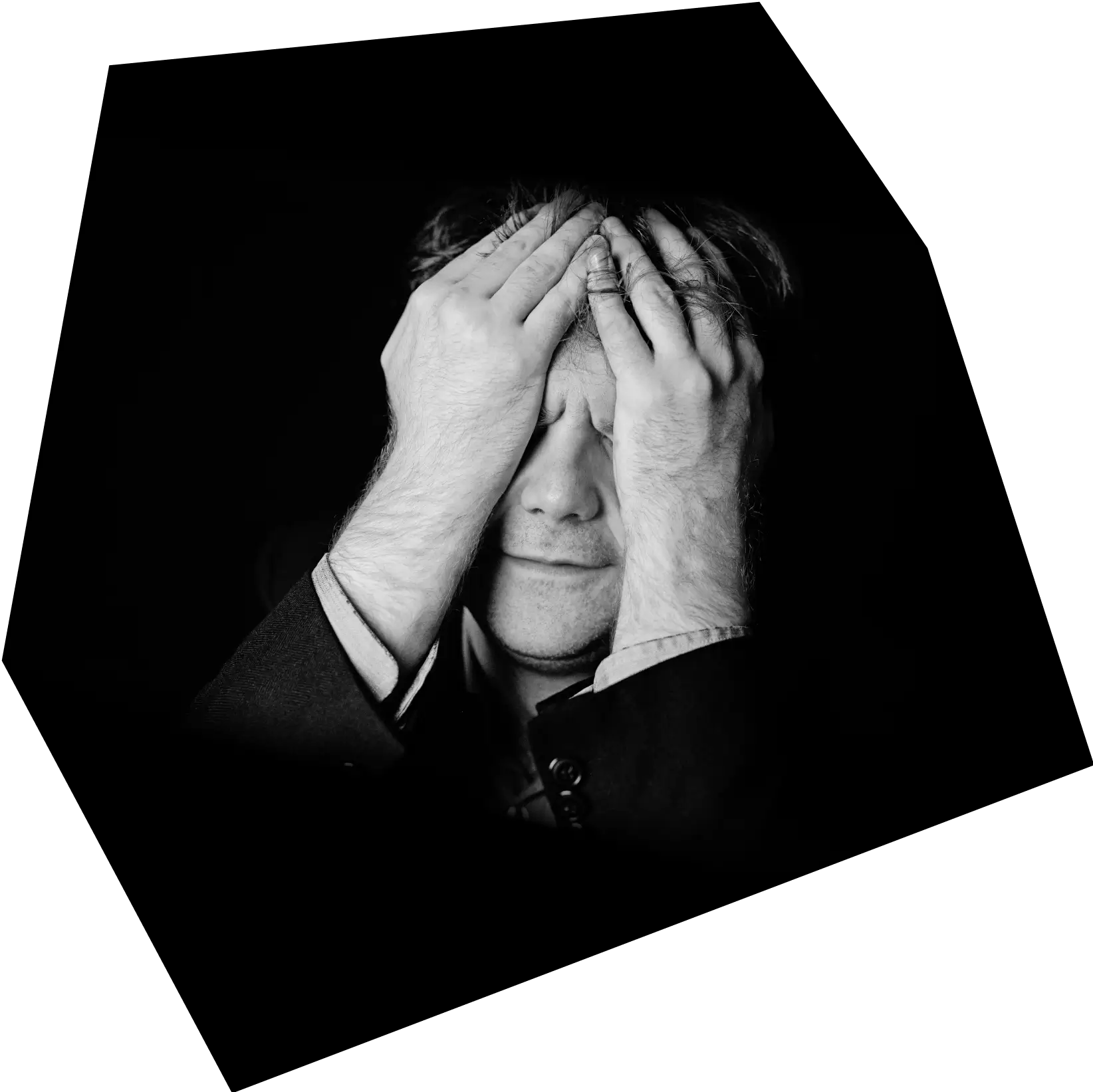
DISCOGRAPHY
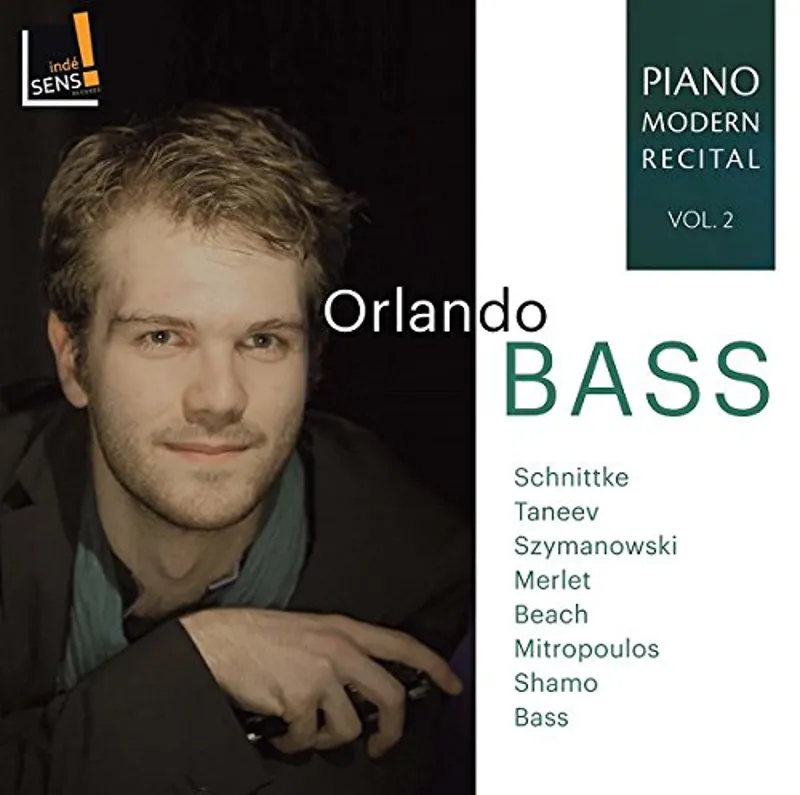
A tribute to the prelude and fugue, eight works of various aesthetics spanning the 20th and 21st centuries showcase different visions of this form of archaic origin. Includes Orlando Bass' own Prelude and Fuga Remollescenda.
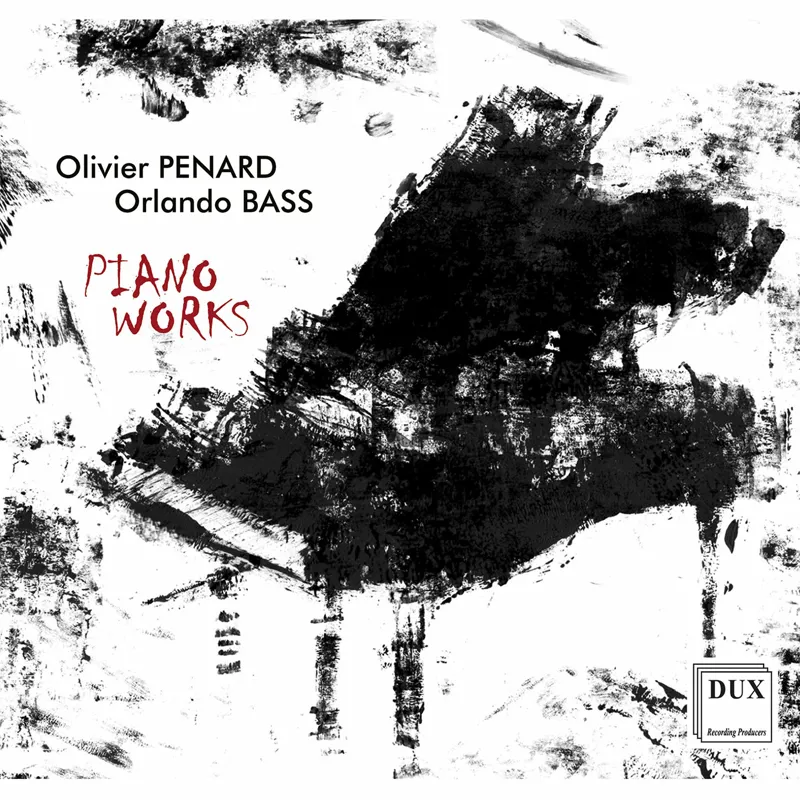
A double-album devoted to Oliver Penard's and Orlando Bass' piano music. Includes Bass's Ironies and Un pot-très-pourri d'opéra. All of the pieces were previously unrecorded.
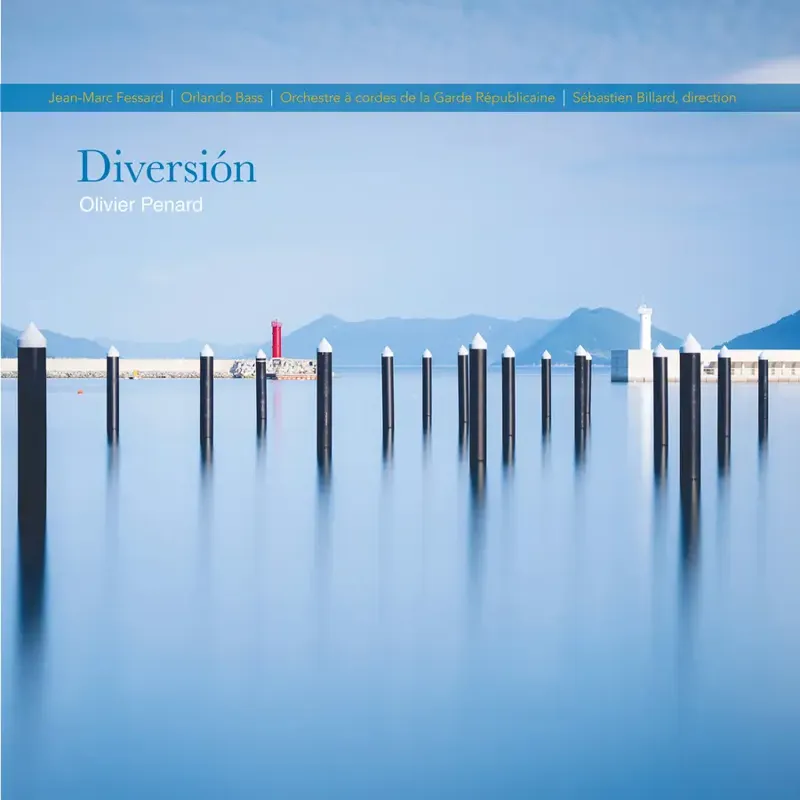
Alongside clarinettist Jean-Marc Fessard and the Orchestre de la Garde Républicaine, a performance of Olivier Penard's passionnate double concert : Concert Argentin.
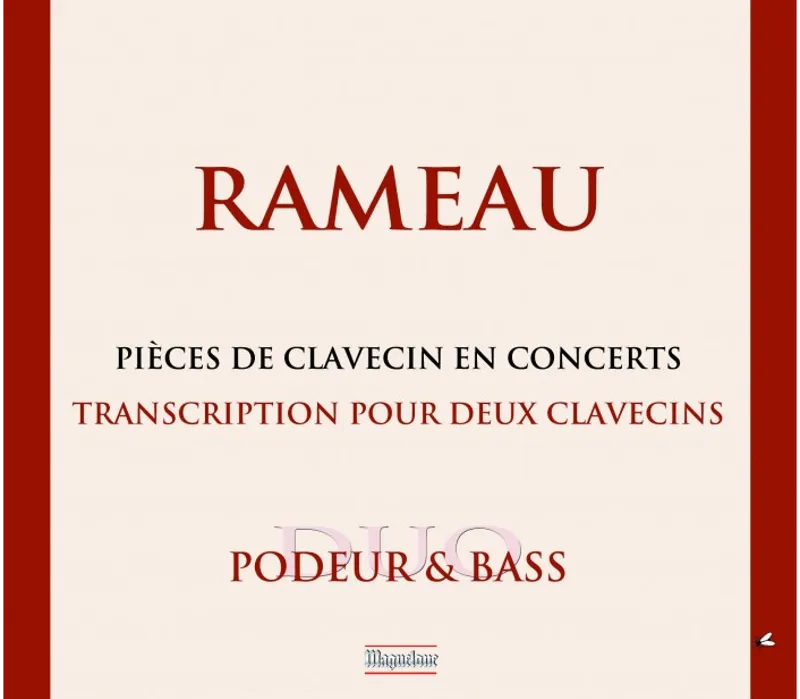
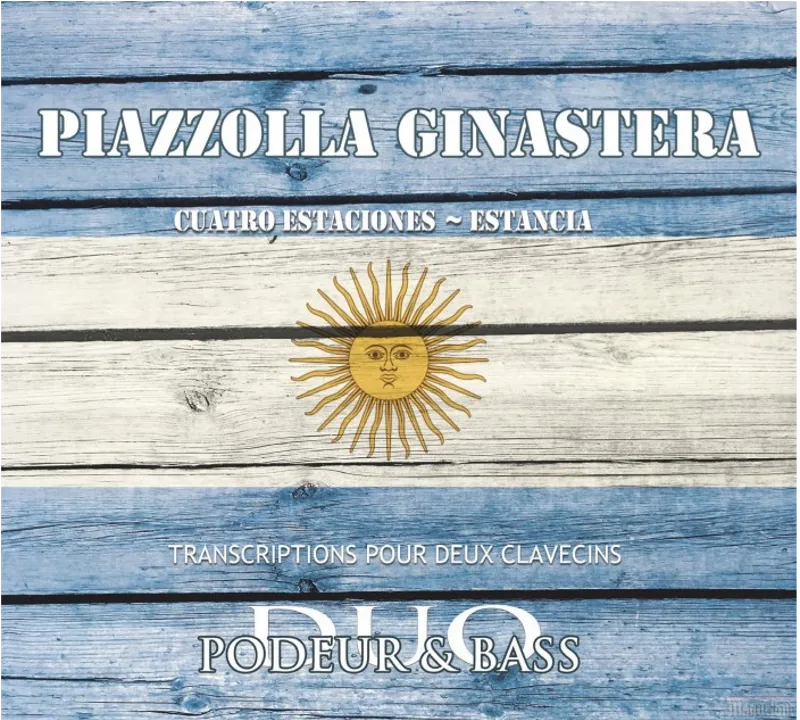
At the crossroads between traditional, academic and experimental music, these original transcriptions for two harpsichords transcend the haunting sound of Piazzolla's Tango Nuevo Cuatro Estaciones, and strum and sing Ginastera's audacious ballet Estancia : a tribute to the flamboyancy of Argentine music.
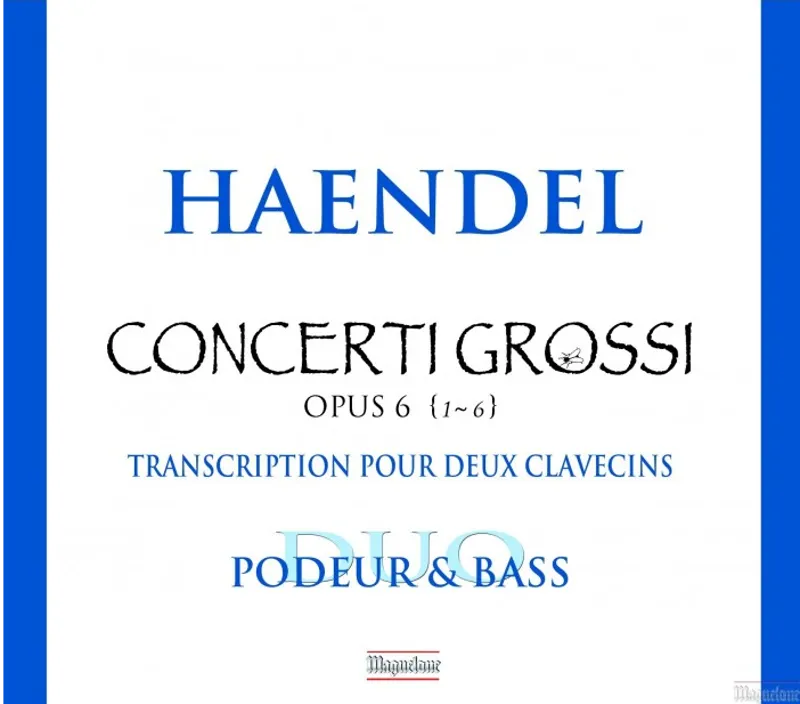
A vibrant arrangement of Haendel's zestful Concerti Grossi op.6, two harpsichords emulate the dialogues between concertino and ripieno.
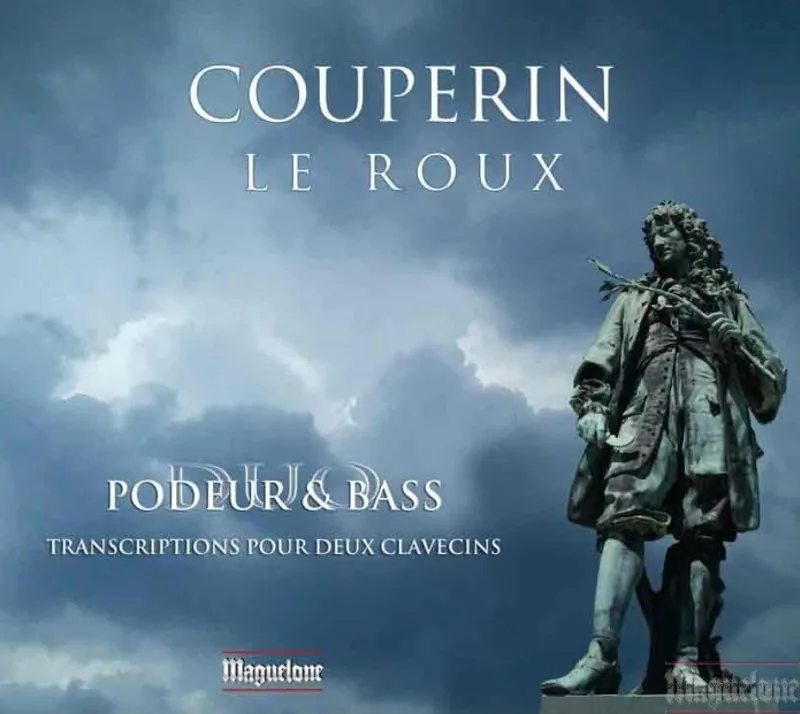
Three Suites crafted from pieces drawn out from F. Couperin's Concerts Royaux, Les Nations, as well as original music for two harpsichords by F. Couperin and G. Le Roux.
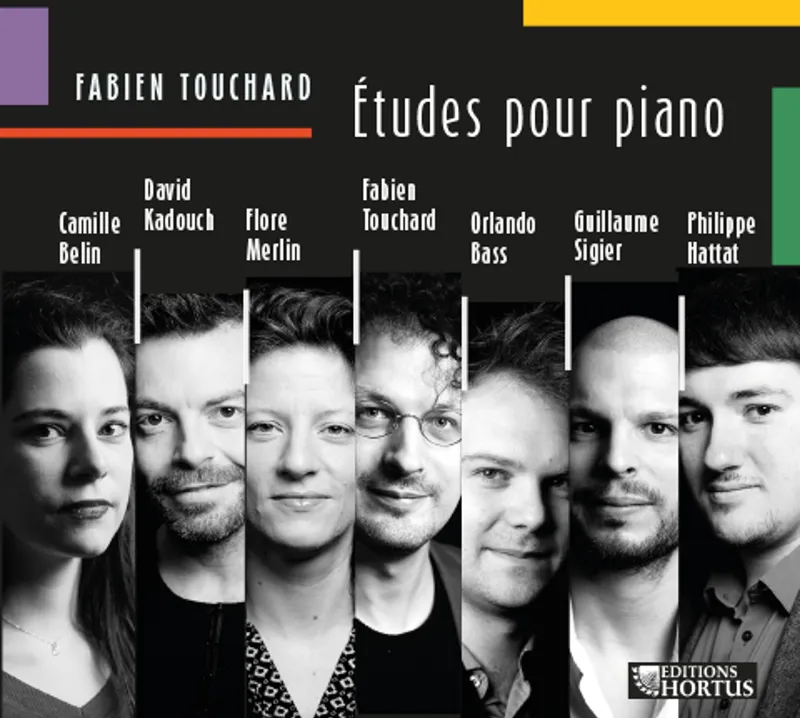
Fabien Touchard's ingenious 12 Etudes for piano are portioned out between multiple pianists.
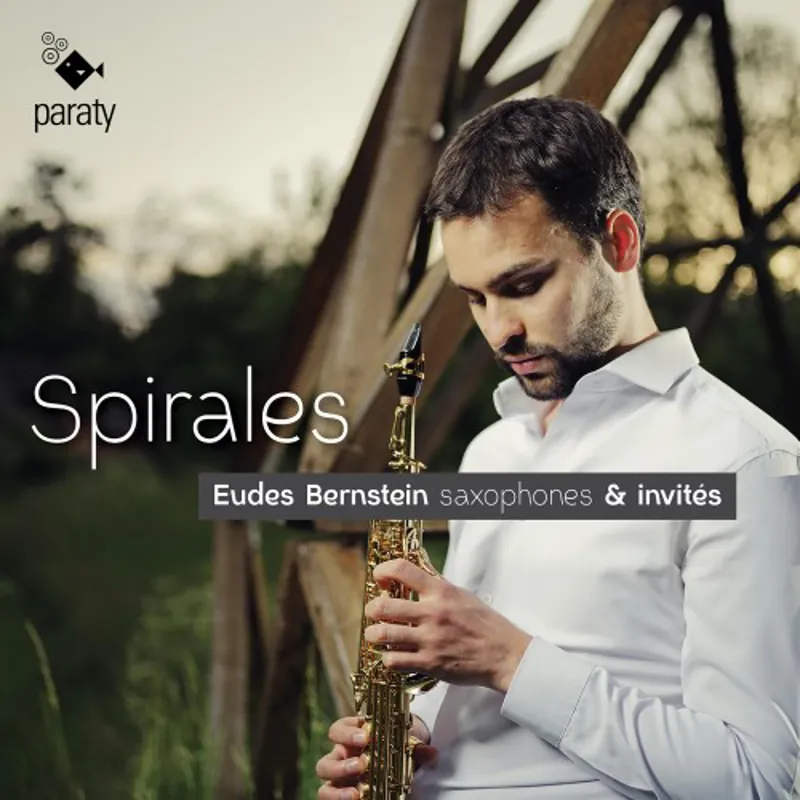
Saxophonist Eudes Bernstein's debut album explores the concept of the time vortex. Orlando Bass joins him for some Ravel, Berlioz, Saint-Saëns and Webern.
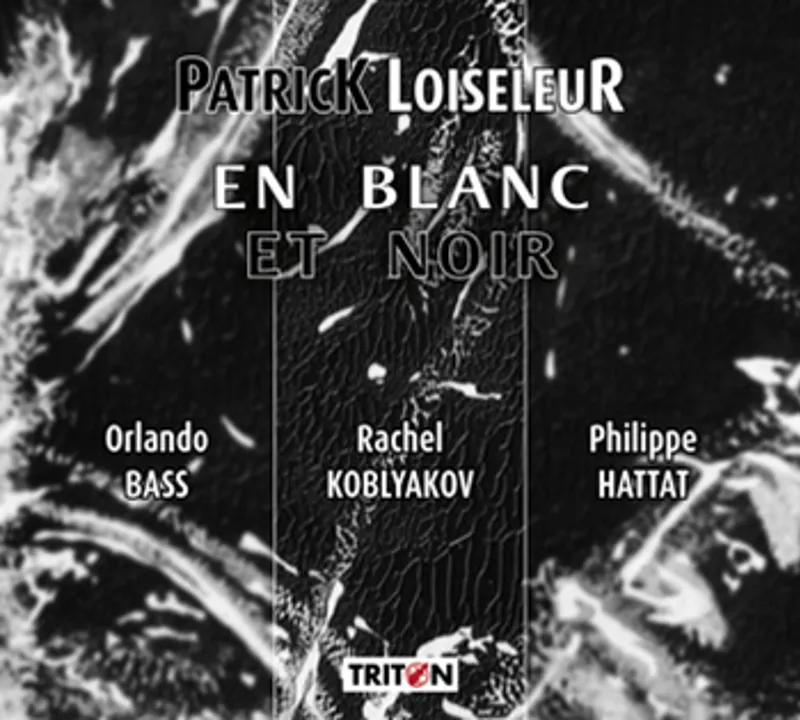
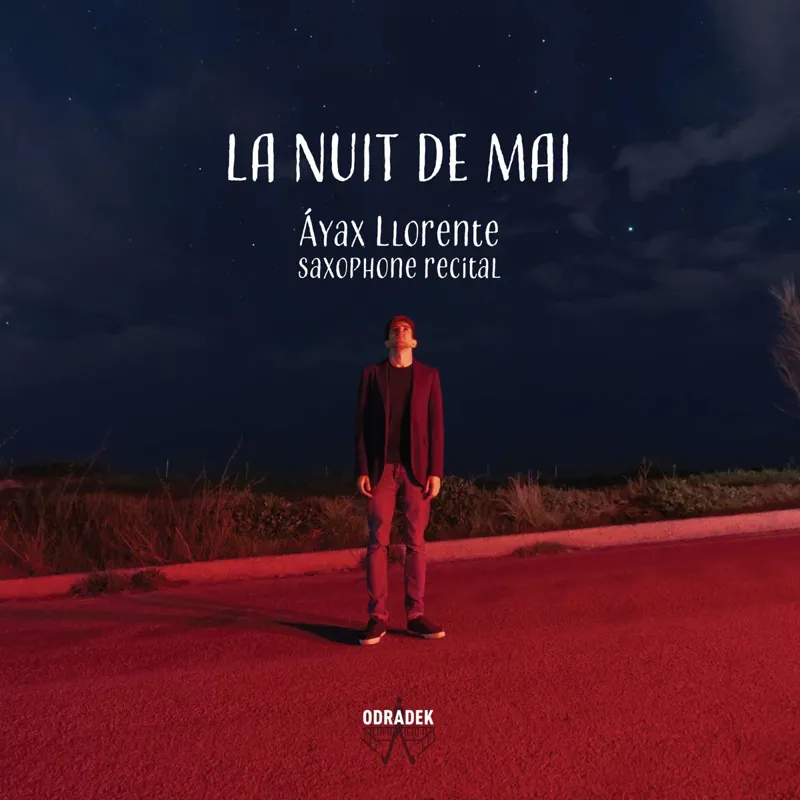
An album of transcriptions of string chamber music for saxophone and piano. Includes Orlando Bass' Veränderungen I.